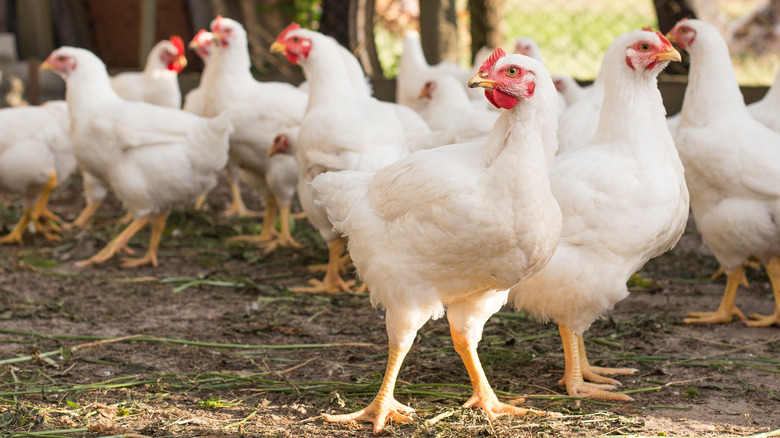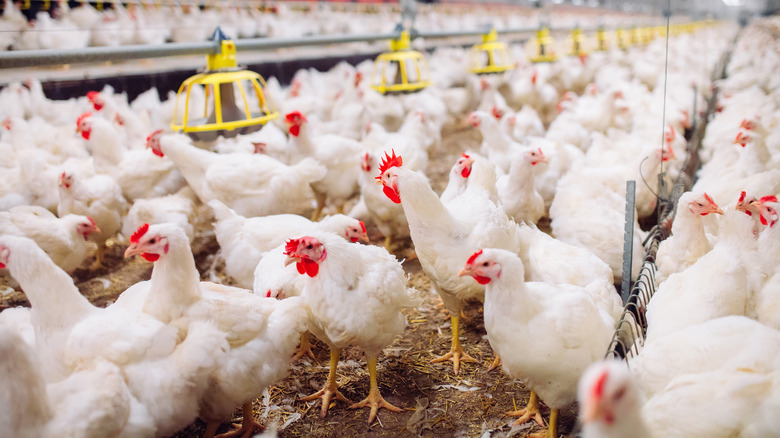Europe Is Dealing With Its Worst Bird Flu Crisis In History
You may want to hold off on putting those bird feeders out: An outbreak of bird flu has been sweeping the world, impacting European countries as well as the United States (via The Guardian).
According to the U.S. Centers for Disease Control and Prevention (CDC), symptoms of bird flu often present themselves in a wide range. While some people show no symptoms, others may have a fever, coughing fits, sore throat, runny nose, or respiratory issues. The CDC notes that the disease is typically spread between birds and not between people. However, infected animals can transfer the disease to people if they are handled without protection.
In the 2020-2021 season, reports the BBC, there were just 26 cases of flocks infected with the bird flu in the United Kingdom. In the 2021-2022 season, that number leaped up to 161 cases. The higher rates of infection are impacting flocks and farmers across Europe and could have devastating repercussions for poultry product exports.
Infections could impact products
According to Reuters, Europe is facing devastating numbers of bird flu infections in flocks and nearly 50 million birds have been culled across 37 countries as a result — the widest reported range of infection in history. Bird flu typically hits during the fall and winter months thanks to migrating birds. But Europe faced an unexpectedly high number of cases during the summer. Though bird flu numbers tend to decline in the summer, The Guardian reports that this year's numbers were five times higher than expected.
The heightened rates of infection are causing concerns around surviving flocks due to the risk of human infection, as well as potential trade restrictions. The U.S. Department of Agriculture (USDA) limits poultry and poultry imports from countries with high infection rates. This means that farmers could lose out on money from product sales even if they manage to avoid any flock infections.
Per The Guardian, a bird flu vaccine is reportedly in the works in France and the Netherlands, but it is still in the trial phase and its effectiveness is still unclear. Additionally, vaccinated birds may still be able to spread the disease to unvaccinated birds, even if they are asymptomatic.

